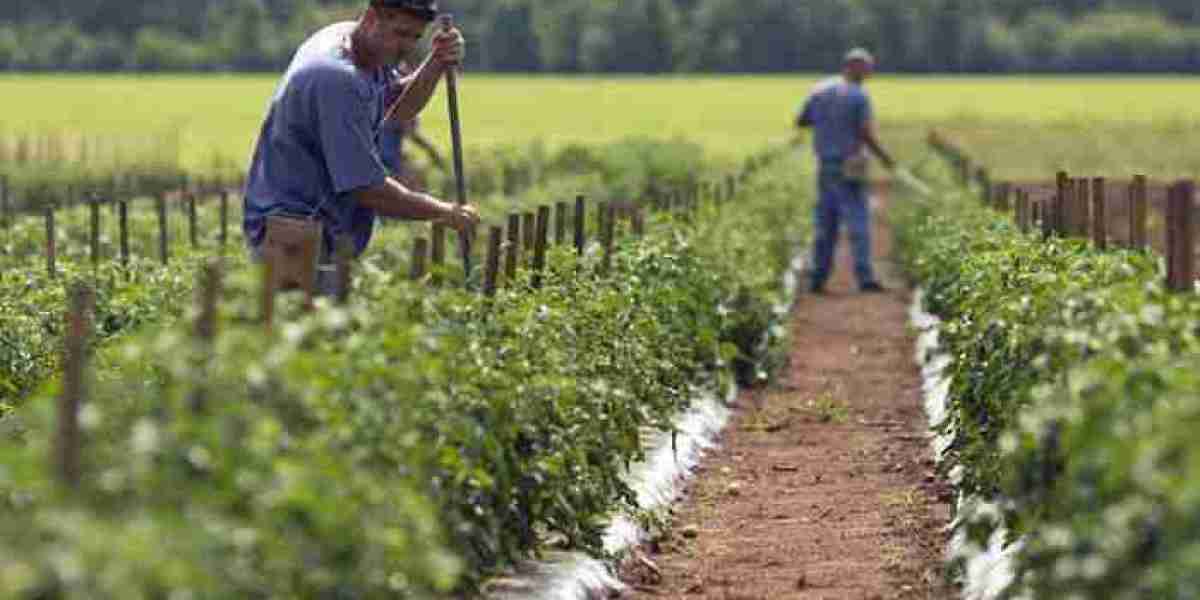Precision agriculture has taken root in India, with personalized farming advisory services leading the charge. These advisory systems go beyond general recommendations—they tailor crop strategies to the specific needs of soil, weather, crop variety, and farmer goals. This results in increased productivity, cost-efficiency, and resilience to challenges like climate variability and pest attacks.
Digital platforms, such as the Agribegri app, are making this transformation accessible to all farmers. Through real-time alerts, expert agronomist support, and verified agri products, farmers are empowered to make smarter decisions throughout the season. The app also bridges the gap between local knowledge and scientific precision.
Why Personalized Advisory Is Essential for Modern Farming
No two farms are the same. Variables such as microclimate, soil texture, and crop history influence the success of any agricultural input. Generic advice often leads to over- or under-application of products, wasted resources, and missed profit opportunities.
Personalized advisory adapts to specific situations by:
Mapping local pest and disease threats in real-time
Tailoring fertilizer schedules based on soil test reports
Reports from multiple KVKs and agri-tech pilot programs suggest that personalized advisory can boost yields by 19% and reduce input misuse by up to 28%.
How Digital Ecosystems Enable Personalized Recommendations
Modern tools like the agricentral app and Kisan Vedika integrate satellite imaging, pest modeling, and historical crop data. These technologies offer precise advisories delivered through SMS, WhatsApp, or mobile dashboards. Farmers receive:
Seasonal sowing windows
Fertilizer dosage recommendations based on plant growth stage
Early alerts for pest and disease infestations
These recommendations are created and validated by agronomists, often in collaboration with agriculture universities and state agriculture departments.
Four Essential Farming Products Backed by Agronomist Tips
1. Water-Soluble Fertilizers (NPK 19:19:19, 13:40:13)
Highly efficient and quick-acting, water-soluble fertilizers are best suited for crops in their flowering and fruiting phases. These fertilizers deliver nutrients directly through foliar feeding or fertigation systems.
Application: 5–10 kg per acre depending on crop stage
Best For: Tomato, grapes, chili, brinjal
Composition: Fully soluble blend of nitrogen, phosphorus, and potassium
Agronomist Tip: “Apply during early morning or late evening to avoid nutrient loss due to evaporation. Follow with irrigation for better absorption.”
Benefits: Faster uptake, improves fruit quality, reduces flower drop
Non-Benefits: Overuse can lead to salt build-up in the soil
2. Neem Coated Urea
A government-approved nitrogen source, neem coated urea is treated with neem oil to control nitrogen release and reduce losses due to leaching or volatilization.
Application: 45–50 kg per acre, in split doses
Best For: Paddy, wheat, sugarcane, maize
Made From: Urea granules coated with neem derivatives
Agronomist Tip: “Apply first split 15 days after sowing and second at 35–40 days for optimum nitrogen use. Avoid application before heavy rainfall.”
Benefits: Improves soil microflora, reduces pest incidence
Non-Benefits: May not perform well in sandy soils with poor moisture retention
3. Biofungicides (Trichoderma viride, Bacillus subtilis)
Biofungicides are microbial-based products that suppress disease-causing fungi in the soil and on plant surfaces. They work best as preventive treatments.
Application: 2–4 kg per acre via drenching or seed treatment
Best For: Chilli, onion, groundnut, paddy nurseries
Made From: Fermented cultures of beneficial microbes
Agronomist Tip: “Apply 5–7 days before expected rainfall to allow colonization. Use along with compost or FYM for better spore survival.”
Benefits: Safe for pollinators, builds long-term immunity
Non-Benefits: Effectiveness reduces if mixed with chemical fungicides
4. Hybrid Vegetable Seeds (Tomato, Cabbage, Cucumber)
Hybrid seeds are developed for specific regional traits like disease resistance, drought tolerance, or fruit uniformity. They need proper spacing, nutrition, and care to realize full potential.
Application: Nursery raising followed by transplantation
Best For: Tomato, capsicum, bitter gourd, watermelon
Made From: Crossbreeding of two pure plant lines
Agronomist Tip: “Do not transplant hybrid seedlings older than 25 days. Use starter dose of phosphorus fertilizer during planting.”
Benefits: Higher yield potential, better resistance to common diseases
Non-Benefits: Cannot reuse seeds, requires intensive management
"Every hectare of land holds different possibilities. Personalized advisory helps farmers unlock them with confidence, not guesswork."
How Advisory Systems Link with Farm Inputs for Higher ROI
Agronomic recommendations are only effective when supported by timely and suitable inputs. Advisory platforms today integrate:
Soil data: pH, organic matter, nutrient profile
Weather insights: Forecast-driven pest risk models
Crop calendars: Stage-specific growth milestones
Kisan Vedika uses such inputs to customize weekly action plans for farmers. These plans often include reminders for irrigation, foliar feeding, pesticide application, and even harvest timing based on expected monsoon patterns.
Layering Advisory With Input Procurement
Digital platforms go beyond advice. They connect farmers with reliable sources for implementing recommendations:
Platform | Advisory Feature | Procurement Integration |
Agribegri app | Crop-specific product suggestions | Direct access to recommended inputs |
Agricentral app | Weather-based alerts + pest detection | Verified vendor marketplace |
Kisan Vedika | Real-time regional agri advisories | Product bundling with dosage guides |
This fusion of guidance and delivery ensures that the right product is available at the right time.
Personalized Advice at Every Crop Stage
Crop Stage | Advisory Focus | Expected Outcome |
Pre-sowing | Seed selection, soil preparation | Healthy plant population |
Germination | Rooting support, pest prevention | Uniform emergence |
Vegetative | Fertilizer scheduling, weed control | Strong canopy, better nutrient absorption |
Reproductive | Flower support, micronutrient input | Increased pod/fruit count |
Maturity | Irrigation halt, disease check | Quality produce, minimized post-harvest loss |
These tailored suggestions optimize inputs, reduce uncertainty, and improve crop value per acre.
Future of Advisory-Based Farming in India
As digital infrastructure deepens, advisory systems will become smarter and more localized. The future of personalized farming will include:
Sensor-based irrigation recommendations
Drone-based crop health mapping
Multilingual AI chatbots for instant advisory
Platforms like farming marketplace tools will expand their role in advisory dissemination, becoming full-service hubs from seed to sale.
Farmers adopting these integrated solutions not only improve productivity—they build resilience against unpredictable weather, pest outbreaks, and market fluctuations. It’s not about doing more; it’s about doing smarter.








